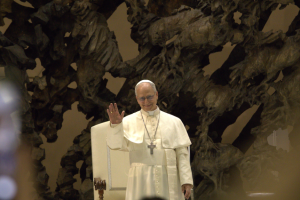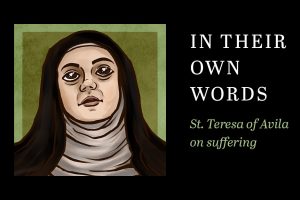Racism is a sin: a sin that divides the human family, blots out the image of God among specific members of the family, and violates the fundamental human dignity of those called to be children of the same Father. Racism is the sin that says some human beings are inherently superior and others essentially inferior because of race. It is the sin that makes racial characteristics the determining factor for the exercise of human rights. . . . racism is more than a disregard for the words of Jesus; it is a denial of the truth of the dignity of each human being revealed by the mystery of the Incarnation.
Men, women, and children are being denied opportunities for full participation and advancement in our society because of their race. The educational, legal, and financial systems, along with other structures and sectors of our society, impede people's progress and narrow their access because they are black, Hispanic, Native American or Asian.
The structures of our society are subtly racist, for these structures reflect the values which society upholds. They are geared to the success of the majority and the failure of the minority. Members of both groups give unwitting approval by accepting things as they are. Perhaps no single individual is to blame. The sinfulness is often anonymous but nonetheless real. All of us in some measure are accomplices.
Racial discrimination has only exacerbated the harmful relationship between poverty and family instability. . . . Racism is only too apparent in housing patterns in our major cities and suburbs. Witness the deterioration of inner cities and the segregation of many suburban areas.
Racism is apparent when we note that the population in our prisons consists disproportionately of minorities; that violent crime is the daily companion of a life of poverty and deprivation; that the victims of such crimes are also disproportionately nonwhite and poor. Racism is also apparent in the attitudes and behavior of some law enforcement officials and in the unequal availability of legal assistance.
Racism is sometimes apparent in the growing sentiment that too much is being given to racial minorities by way of affirmative action programs or allocations to redress long-standing imbalances in minority representation and government-funded programs for the disadvantaged.
Racism persists in covert ways . . . it is manifest in the tendency to stereotype and marginalize whole segments of the population whose presence is perceived as a threat. It is manifest also in the indifference that replaces open hatred. The minority poor are seen as the dross of a post-industrial society_without skills, without motivation, without incentive. They are expendable. Many times the new face of racism is the computer print-out, the graph of profits and losses, the pink slip, the nameless statistic. Today's racism flourishes in the triumph of private concern over public responsibility, individual success over social commitment, and personal fulfillment over authentic compassion. Then too, we recognize that racism exists in the attitudes and behavior of some who are themselves members of minority groups.
How great, therefore, is that sin of racism which weakens the Church's witness as the universal sign of unity among all peoples! How great the scandal given by racist Catholics who would make the Body of Christ, the Church, a sign of racial oppression! Yet all too often the Church in our country has been for many a "white Church," a racist institution.
Each of us as Catholics must acknowledge a share in the mistakes and sins of the past. Many of us have been prisoners of fear and prejudice. We have preached the Gospel while closing our eyes to the racism it condemns. We have allowed conformity to social pressures to replace compliance with social justice.
Let the Church speak out, not only in the assemblies of the bishops, but in every diocese and parish in the land, in every chapel and religious house, in every school, in every social service agency, and in every institution that bears the name Catholic.
Efforts to achieve racial balance in government, media, the armed services, and other crucial areas of secular life should not only be supported but surpassed in the institutions and programs of the Catholic Church.
We see the value of fostering greater diversity of racial and minority group representation in the hierarchy. Furthermore, we call for the adoption of an effective affirmative action program in every diocese and religious institution.
We ask in particular that Catholic institutions such as schools, universities, social service agencies, and hospitals . . . review their policies to see that they faithfully conform to the Church's teaching. . . . We recommend that investment portfolios be examined in order to determine whether racist institutions and policies are inadvertently being supported. We further recommend that Catholic institutions avoid the services of agencies and industries which refuse to take affirmative action to achieve equal opportunity.
We recommend the continuation and expansion of Catholic schools in the inner cities and other disadvantaged areas. No sacrifice can be so great, no price can be so high, no short-range goals can be so important as to warrant the lessening of our commitment to Catholic education in minority neighborhoods. More affluent parishes should be made aware of this need and of their opportunity to share resources with the poor and needy in way that recognizes the dignity of both giver and receiver.
There must be no turning back along the road of justice, no sighing for bygone times of privilege, no nostalgia for simple solutions from another age. For we are children of the age to come, when the first shall be last and the last first, when blessed are they who serve Christ the Lord in all His brothers and sisters, especially those who are poor and suffer injustice.












Add comment